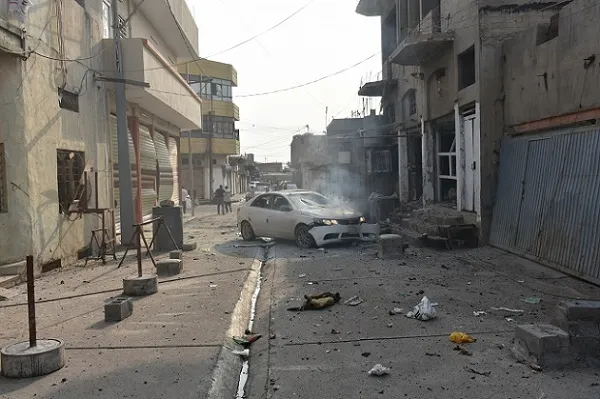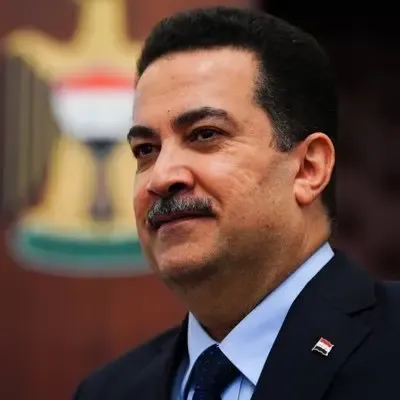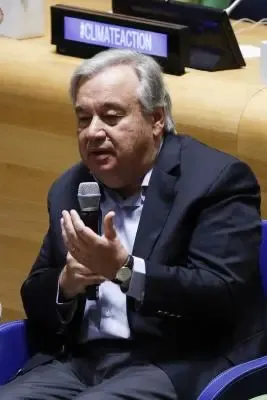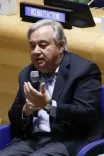Is Rising Islamic Extremism a Cause for Concern?

Synopsis
Key Takeaways
- Rising Islamic extremism is a global concern impacting Europe and South Asia.
- Indoctrination of youth in madrassas is a pressing issue.
- The abduction of minority girls in Pakistan highlights the need for urgent action.
- Political Islam threatens fundamental rights and freedoms.
- Extremism flourishes where institutions are weak and elites hesitate.
Geneva, Oct 3 (NationPress) A gathering of human rights activists, politicians, and experts convened in Geneva this week to address the alarming rise of radicalization impacting both Europe and South Asia. The discussions focused on the increasing prevalence of extremism, anti-Semitism, and terrorism, alongside the indoctrination of youth.
This side-event, held during the 60th session of the United Nations Human Rights Council (UNHRC), highlighted pressing issues such as the indoctrination of children in Bangladeshi madrassas, the abduction of minority girls in Pakistan, and the oppressive regulations enforced by the Taliban in Afghanistan.
Himanshu Gulati, a member of Norway's Storting - the Norwegian Parliament - emphasized the breadth of the threat posed by rising Islamic extremism.
"The rise of Islamic extremism is a troubling trend, whether in South Asia or Europe," he stated. "Currently, the entire Indo-Mediterranean region is embroiled in conflict within our connected world. Terrorism originating from Pakistan, Bangladesh, Syria, and Yemen not only impacts their regions but also reverberates through the rights and futures of vulnerable groups, especially women and children in Europe. We must seek solutions to safeguard the most vulnerable among us," he added.
Gulati further stressed the global implications of this rising extremism.
"Whether terrorism occurs in Manchester, as recently witnessed, or in Pahalgam, Yemen, and other regions, this interconnected threat also returns to our continent, Europe, where vulnerable women and children are affected. This constitutes a threat to humanity. It is our collective duty, as civilized democracies, to combat such terrorism in the battle between good and evil," he continued.
Anna Maria Cisint, a member of the European Parliament, elaborated on the ramifications of political Islam.
"In nations where political Islam prevails, fundamental rights are routinely violated: gender equality disappears, and political and civil liberties are curtailed. Islamic theocracy serves as a means to impose a narrative contrary to the values of dignity and freedom," she stated.
Cisint's warnings extend beyond distant regimes.
"Political Islam also exhibits a clear intention to conquer and impose Quranic laws in Europe, aiming to undermine democratic institutions and replace the bedrock of our civilization with the mandates of Sharia. The signs are evident in the serious incidents of female oppression we see daily in our cities, where young girls and adolescents are confined by their families to live in Islamic cages. For Europe to remain a bastion of civilization and freedom, it must staunchly defend its foundational principles and values, leaving no room for radicalization," asserted the European Parliament member.
The indicators are stark in grooming gangs exposed in the UK, radical networks in France and Germany, and families imposing restrictions on daughters in the name of tradition. Analysts noted that authorities frequently avert their gaze out of fear of being labeled discriminatory.
"We cannot accept grooming gangs in Europe or threats to our women and children. We can no longer tolerate complacent European elites, law enforcement, and media compromising safety and security for the sake of multiculturalism. We cannot countenance extremists in Bangladesh, Pakistan, Afghanistan, or anywhere else treating women worse than animals or oppressing minorities," stated Erik Selle, a European advocate for women's rights and child protection.
The experts noted that extremism flourishes where elites are indecisive, institutions are frail, and the suffering of women and children is disregarded as collateral damage.
"The Indo-Mediterranean is a crucial geopolitical area for trade and transport of goods, yet it is severely impacted by ongoing conflicts. As we approach the anniversary of the October 7 Hamas terrorist attacks on Israel, we've gained a clearer understanding of the interconnectedness of terror, stretching from Iran to Lebanon, from Yemen to Syria. Yet we are not immune. The same terrorist organizations that fundraise in Europe, radicalize youth, and plan terrorist attacks in India are at play here as well," remarked Vas Shenoy, the President of Glocal Cities.









